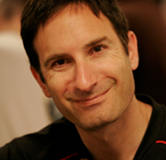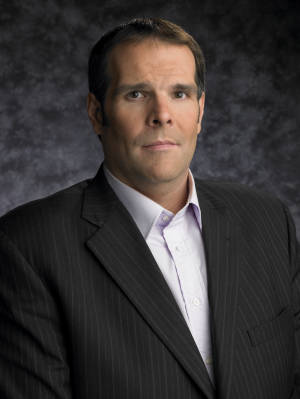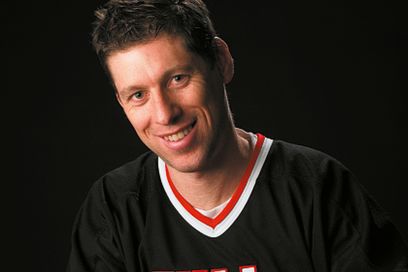ByGreg Mascio
 C when a familiar refrain on a table of Omaha/8, the implementation is capée on the turn in a family pot. In theory, this query is designed to save time c is easier to divide the tokens at the end of the hand when they are not in a monstrous pile in the center of the table. But it also means: "give us this cursed River.
C when a familiar refrain on a table of Omaha/8, the implementation is capée on the turn in a family pot. In theory, this query is designed to save time c is easier to divide the tokens at the end of the hand when they are not in a monstrous pile in the center of the table. But it also means: "give us this cursed River.
C is often just a pot like that that makes the difference at the end of the day with the losers and the winners between geniuses and those left behind. And play this kind of hand will correctly determine who will have success in the long term in this game.
On the River, it will save the most possible chips when our game will be beaten and maximize our earnings when we will hold the nuts.
The first and most important thing, especially in the Omaha/8, c is to know where you stand on all streets. Several players simply never fold a hand in a big pot, even they know is beaten. They call on the line just to see where they were in hand.
A typical hand where you could find yourself in l embarrassment if you flopez two pairs with a hand like A-3-6-K. The flop falls A-3-D, with a flush draw you n have not. You are the first to enter the pot and you start upgrade. You are then revived, there is a call, another player three-bet and the floor then returned to you. You could run very little at this stage. If an ACE falls, you could hold the 2nd best full house. If you hit a King on the turn, your two pairs could be beaten by 10-Q-K. If a 6, you could still be beaten by A - J, and all the other draws possible as the flush for example.
Yet, almost 100% of the players here call in this situation. Why? Mainly because the average player will rarely make a bet to then lie on the same street. I n have almost never seen it. To be a winning player, specially to O/8, you must be able to let go of your losing hands.
D another side, suppose the same flop A-3-D while you hold A-2-4-5 with the nuts flush draw. Yes, you are a monster. You are first to speak, you bet, and again, the pot is restarted and three-bette. This time, you capez the establishment. The turn brings a 2. Now, it is time to make an additional bet.
With any l action before you on the flop, you are almost certain that someone will bet if you check. You check to suggest to your opponents that you now doubt of your hand or qu at best, you have a set. After a bet and a few calls, you are now in position for a check - raise and you won't lose probably even players who draw-dead! L excuse no. 1 that encourages players to caller with a losing hand? "The pot is too big."
If you had bet on the turn when 2 came out, your opponents would probably put you on the hand you have and you n would have had no action. Same players however caller your check - raise, perhaps hoping to hit their lucky card, and at least you made them pay.
There are several large family pots to O/8. It may be easily tempting to play when you see all the money in the center of the table. But as in most variants of poker, a strong hand heads-up or in a pot, rarely takes the shot in a big family pot. And O/8, you will find five or six players each in their hands holding four cards. It is therefore very difficult to have the best hand when it does make that two pairs on the flop.
Omaha-Eight-or-Better, should almost always have nuts or at least run the nuts. C is the reason why a hand like A-2 with other two cards at random, say 8-10, is a dangerous hand. This hand will cost you too much for what it can earn you over the long term.
A hand that will work for the high and the low, such as A-2-Q-K or A-2-4-K (preferably with) is the key. "Nut - Nut" is a wonderful thing, especially at the end of a monstrous when pot dealer returns all chips in front of each player in front of you.
 C when a familiar refrain on a table of Omaha/8, the implementation is capée on the turn in a family pot. In theory, this query is designed to save time c is easier to divide the tokens at the end of the hand when they are not in a monstrous pile in the center of the table. But it also means: "give us this cursed River.
C when a familiar refrain on a table of Omaha/8, the implementation is capée on the turn in a family pot. In theory, this query is designed to save time c is easier to divide the tokens at the end of the hand when they are not in a monstrous pile in the center of the table. But it also means: "give us this cursed River.C is often just a pot like that that makes the difference at the end of the day with the losers and the winners between geniuses and those left behind. And play this kind of hand will correctly determine who will have success in the long term in this game.
On the River, it will save the most possible chips when our game will be beaten and maximize our earnings when we will hold the nuts.
The first and most important thing, especially in the Omaha/8, c is to know where you stand on all streets. Several players simply never fold a hand in a big pot, even they know is beaten. They call on the line just to see where they were in hand.
A typical hand where you could find yourself in l embarrassment if you flopez two pairs with a hand like A-3-6-K. The flop falls A-3-D, with a flush draw you n have not. You are the first to enter the pot and you start upgrade. You are then revived, there is a call, another player three-bet and the floor then returned to you. You could run very little at this stage. If an ACE falls, you could hold the 2nd best full house. If you hit a King on the turn, your two pairs could be beaten by 10-Q-K. If a 6, you could still be beaten by A - J, and all the other draws possible as the flush for example.
Yet, almost 100% of the players here call in this situation. Why? Mainly because the average player will rarely make a bet to then lie on the same street. I n have almost never seen it. To be a winning player, specially to O/8, you must be able to let go of your losing hands.
D another side, suppose the same flop A-3-D while you hold A-2-4-5 with the nuts flush draw. Yes, you are a monster. You are first to speak, you bet, and again, the pot is restarted and three-bette. This time, you capez the establishment. The turn brings a 2. Now, it is time to make an additional bet.
With any l action before you on the flop, you are almost certain that someone will bet if you check. You check to suggest to your opponents that you now doubt of your hand or qu at best, you have a set. After a bet and a few calls, you are now in position for a check - raise and you won't lose probably even players who draw-dead! L excuse no. 1 that encourages players to caller with a losing hand? "The pot is too big."
If you had bet on the turn when 2 came out, your opponents would probably put you on the hand you have and you n would have had no action. Same players however caller your check - raise, perhaps hoping to hit their lucky card, and at least you made them pay.
There are several large family pots to O/8. It may be easily tempting to play when you see all the money in the center of the table. But as in most variants of poker, a strong hand heads-up or in a pot, rarely takes the shot in a big family pot. And O/8, you will find five or six players each in their hands holding four cards. It is therefore very difficult to have the best hand when it does make that two pairs on the flop.
Omaha-Eight-or-Better, should almost always have nuts or at least run the nuts. C is the reason why a hand like A-2 with other two cards at random, say 8-10, is a dangerous hand. This hand will cost you too much for what it can earn you over the long term.
A hand that will work for the high and the low, such as A-2-Q-K or A-2-4-K (preferably with) is the key. "Nut - Nut" is a wonderful thing, especially at the end of a monstrous when pot dealer returns all chips in front of each player in front of you.




